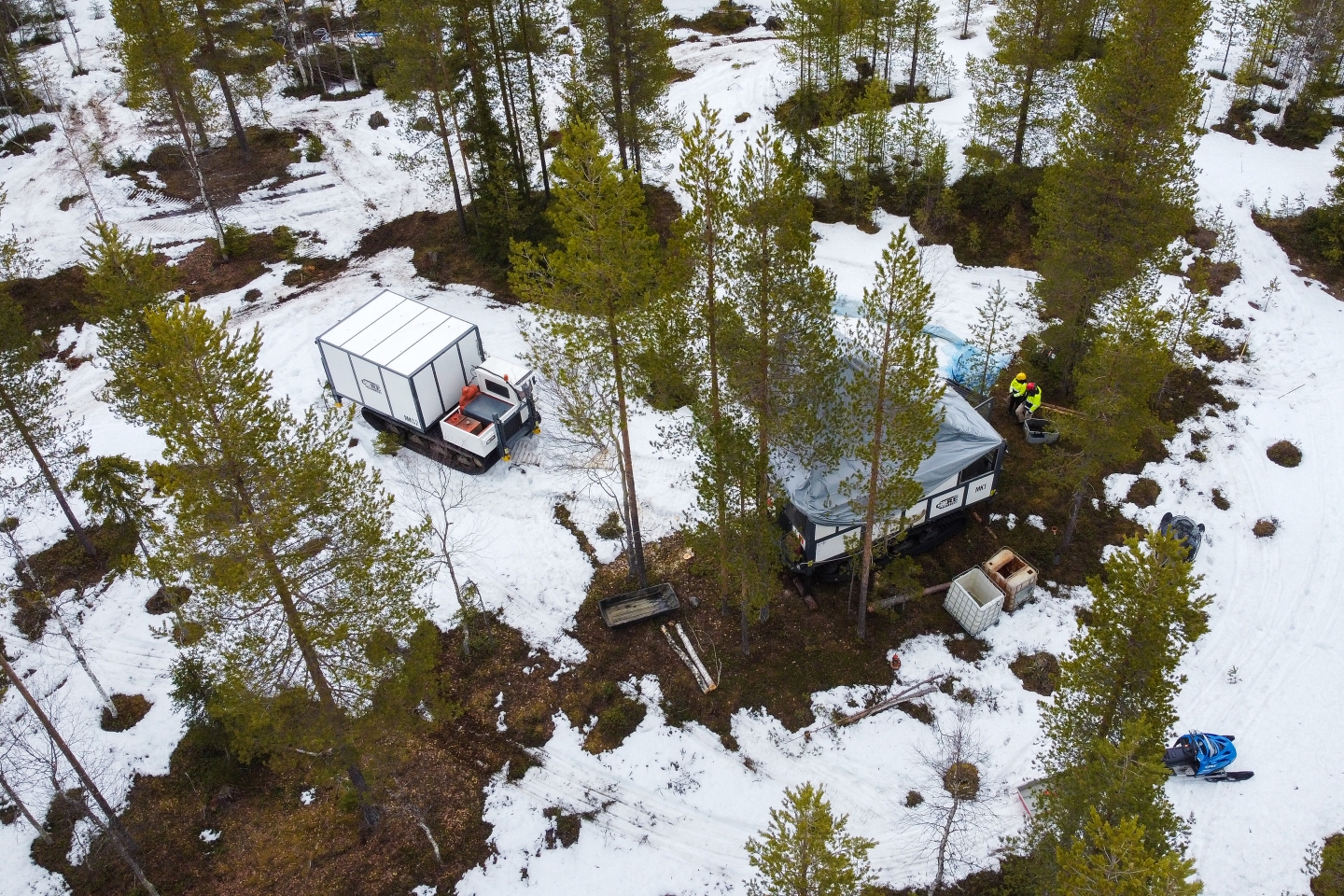Latitude 66 has found evidence of high-grade gold hits after digging through historical data from its K8 target in northern Finland and says the findings support the company’s previous strong assay results and is further evidenced through recent geophysical work at the site. The data was previously compiled from drilling campaigns run by the Geological Survey of Finland (GTK) and former project owner Belvedere Resources.


Latitude 66 has found evidence of high-grade gold hits after digging through historical data from its K8 target in northern Finland and says the findings support the company’s previous strong assay results and is further evidenced through recent geophysical work at the site.
The data was previously compiled from drilling campaigns run by the Geological Survey of Finland (GTK) and Belvedere Resources, the former owner of the operation now known as the Kuusamo Schist Belt (KSB) project.
Various results in the historical numbers included 19m at 6 grams per tonne gold and 0.04 per cent cobalt from 97m, 6.5m at 8.1g/t gold from 45m and 5.6m at 4.9g/t gold including 0.09 per cent cobalt from 58.5m. Management says the results complement its recent assays from K8, including a hit of 10.3m at 4.8 g/t gold and 0.04 per cent cobalt.
The follow-up downhole electromagnetic (DHEM) survey has identified a conductor exceeding 650 Siemens at the K8 prospect. While the conductor is not as strong as the one found at the K9 target, it is nevertheless down- plunge and offers compelling evidence of significant mineralisation potential that is yet to be unearthed.
A comprehensive geochemical assessment has also confirmed the presence of favourable host rocks for gold and cobalt mineralisation, strengthening the geological model for the K8 prospect.
The latest discovery suggests the possibility of further expanding the project's global resource, which currently stands at 7.2 million tonnes at 2.7g/t gold and 0.08 per cent cobalt, equating to 655,000 ounces of gold and 5840 tonnes of contained cobalt.
Latitude 66 managing director Grant Coyle said: “The presence of high-grade gold mineralisation at the K8 Prospect is now confirmed by both historic and Lat66 drilling. The conductive plates identified in the follow-up DHEM further enhance the prospectivity at K8, highlighting the potential for mineralisation to continue at depth.”
Coyle says the down-plunge potential at K8 will be tested immediately after the completion of the imminent K9 drill program. Results from both programs will then be used to identify whether maiden JORC mineral resource estimates can be calculated to grow the resource base.
The K8 program has been designed to include 500m of diamond drilling, focusing on the newly-identified conductive plates in a bid to confirm the down-plunge extensions of the prospect.
K8 lies 3km north-east of the K9 prospect. The integration of the historical data at the site from the GTK and Belvedere, when combined with Latitude’s recent drilling results, has delineated a strong mineralisation trend extending more than 250m, which remains open down-dip and along strike.
The KSB project, which has a dominant land position of 1000 square kilometres, sits 185m east of Rovaniemi – the capital of Lapland in northern Finland – and 200km east of the earlier-stage Peräpohja Schist Belt project (PSB), which is also owned by Latitude. As well as being highly-prospective for a large-scale gold operation, KSB also hosts the third-biggest undeveloped cobalt deposit in Europe.
As the company pushes on with its exploration activities, the K8 prospect stands out as a tantalising target that could significantly contribute to the overall resource potential of the KSB project. So, drilling in next few months at K8 and K9 has the potential to really shape the operation.
Is your ASX-listed company doing something interesting? Contact: matt.birney@businessnews.com.au













